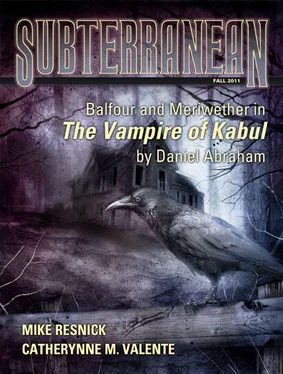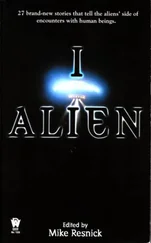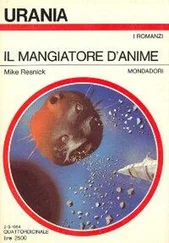Mike Resnick - Shaka II
Здесь есть возможность читать онлайн «Mike Resnick - Shaka II» весь текст электронной книги совершенно бесплатно (целиком полную версию без сокращений). В некоторых случаях можно слушать аудио, скачать через торрент в формате fb2 и присутствует краткое содержание. Год выпуска: 2011, Издательство: Subterranean Press, Жанр: Фантастика и фэнтези, на английском языке. Описание произведения, (предисловие) а так же отзывы посетителей доступны на портале библиотеки ЛибКат.
- Название:Shaka II
- Автор:
- Издательство:Subterranean Press
- Жанр:
- Год:2011
- ISBN:нет данных
- Рейтинг книги:3 / 5. Голосов: 1
-
Избранное:Добавить в избранное
- Отзывы:
-
Ваша оценка:
- 60
- 1
- 2
- 3
- 4
- 5
Shaka II: краткое содержание, описание и аннотация
Предлагаем к чтению аннотацию, описание, краткое содержание или предисловие (зависит от того, что написал сам автор книги «Shaka II»). Если вы не нашли необходимую информацию о книге — напишите в комментариях, мы постараемся отыскать её.
Shaka II — читать онлайн бесплатно полную книгу (весь текст) целиком
Ниже представлен текст книги, разбитый по страницам. Система сохранения места последней прочитанной страницы, позволяет с удобством читать онлайн бесплатно книгу «Shaka II», без необходимости каждый раз заново искать на чём Вы остановились. Поставьте закладку, и сможете в любой момент перейти на страницу, на которой закончили чтение.
Интервал:
Закладка:
“How many of our siblings are currently in Pretoria?” he asked.
It was not the question I was expecting. “I don’t know,” I said. “Maybe one, maybe two.”
“Can you find the others?”
“I don’t know,” I replied honestly. “Some of them may not wish to be found. What do you want of them?”
“Mbatha was a Shona. The man who tried to kill me two days ago was a Swazi. I must surround myself with officers and advisors whose loyalty is unquestioned. From this day forth, every advisor, every aide, every senior officer, must be Zulus. And my siblings will be favored above all others.”
“But you don’t even know them!” I exclaimed, surprised. “You haven’t seen most of them since we were children.”
“I know that,” he said calmly.
“They may not agree with your policies,” I continued. “They may dislike you personally.”
“I know that too.”
“Then why—”
“I expected more of you, my brother,” he said. “It matters nothing to me that they may hate or fear me. Before I am done, most people will either hate me or fear me, or both. But more to the point, my enemies will hate and fear those who serve me, and especially those who carry my blood in their veins. My siblings may not like me, but they will like my protection. They do not need it where they are, but once they are by my side, serving me, they will be targets, just as I am—and I will be the only thing keeping them alive. Therefore, they will serve me loyally, and do everything they can to keep me safe and in power.”
It was selfish, it was savage, it was cruel…but it made sense, and I knew I would not be able to talk him out of it.
“And if some of them do not want to come?” I asked at last.
“You will explain their options, and they will come.”
“Their options?”
“If they will not serve me, I have no reason to keep them alive,” he replied.
And it was just as he said. Within two weeks, his entire staff were Zulus, and his closest advisors—always excepting his astrologer Hlatshwayo— were his half-brothers and half-sisters.
12.
Anyone who thought Tchaka would stay on Earth, trust his officers, and await news of the conflict in comfort and luxury clearly didn’t know him.
He named his flagship Great Elephant, the Zulu sobriquet for the original Shaka, and it was actually the first of our fleet to take off. I was the only sibling aboard the ship, but five other brothers and sisters were on other ships as our navy entered the wormhole just beyond the Port Cloud and emerged eighteen light-years away, precisely where Tchaka wanted us, midway on a wide arc between Delta Pavonis and DX Cancri.
As soon as we emerged and found that we were not confronting the enemy, Tchaka ordered one of his officers to pinpoint all the uncolonized oxygen worlds within five light-years of where we were.
“We might as well put the time to good use,” he told me. “If we wait, sooner or later these worlds will be claimed in the name of Earth”—a contemptuous grimace—“as if Earth was a nation or a government.”
Within a day the answer came back: there were seven such worlds. Tchaka immediately sent a small scout ship out to plant the flag, not of South Africa but of the Zulu nation, on each of them. It would take the better part of two months, but if we were attacked in the interim the scout ship would be no more use to us than a lifeboat would have been to a seafaring battleship of old.
As it happened, we did not encounter the enemy for almost three months. By then we were so bored with our dull, daily routine that the presence of a small fleet of ships, doubtless carrying cargo to the embattled ships around Delta Pavonis, actually surprised us. We had almost come to the conclusion (which none dared voice) that Tchaka had guessed wrong, and that the supply lines would be established elsewhere.
“There are fourteen ships, sir,” said an officer. “Shall we engage them?”
Tchaka looked at the viewscreen and frowned. “Something is wrong here,” he said, more to himself than to us.
“Sir?” said the officer.
“Their configuration is wrong.”
“Their formation, sir?”
He shook his head in irritation. “Their configuration.”
“They are probably not human or humanoid, sir,” said the officer. “Their ships will naturally be configured differently.”
“Shut up,” said Tchaka, still staring intently at the screen. “It’s more than their configuration. There are no welds.”
“What difference does that make, sir?” asked another officer.
“And the motive power,” continued Tchaka. “It’s wrong.”
“I beg your pardon?”
Tchaka ignored him and continued staring at the screen for another full minute. Then he turned to us, the trace of a smile on his thin lips.
“We will not engage them,” he announced.
“But isn’t that what we came here to do?” asked the first officer.
“We will choose one ship,” he continued. He turned to the officer. “I will give you the honor of selecting it. And once you do, our entire fleet will attack it with every weapon at our disposal. I want enough firepower not just to disable it but to blow it apart. Is that understood?”
“Yes, sir.”
A few minutes later we closed with the enemy. Their ships tried to move into a defensive formation, but Tchaka had learned and experienced spatial warfare tactics when he served with the American fleet, and it was obvious that the cargo ship commanders had only a rudimentary knowledge of them. We managed to isolate one ship, and once we englobed it the other thirteen ships quickly retreated.
“Now,” said Tchaka, and a moment later the full firepower of our twenty ships tore the enemy ship apart.
“Spectroscope—fast!” ordered Tchaka as the ship’s inner atmosphere seeped out, slowly at first, and then in a huge translucent cloud.
“They’re chlorine breathers, sir,” said the officer manning the spectroscope.
Tchaka smiled. “I thought so. The structure was so different I had a feeling that they hadn’t evolved on an oxygen world. There was no trace of welding, no indication of any science having its basis in heat or fire.”
“Shall we pursue the other ships, sir?” asked an officer.
“No.”
The officer looked surprised. “Sir?”
“Do you want to live on a chlorine world?” asked Tchaka. “I don’t—and why fight for worlds we can’t use? We’ve already found and claimed seven oxygen worlds. That is where our interest lies.”
“But what of Earth, sir?” persisted the officer.
“What of it?” replied Tchaka with no show of concern.
The officer stared at him uncomprehendingly. “Our colonies are under attack, sir.”
Tchaka shook his head. “Earth’s colonies are under attack. As of this moment, we are no longer a part of it.”
13.
Commander Sanchez sent half a dozen furious messages, all of which Tchaka ignored. Then the battle must have taken all of her attention, because the messages abruptly stopped.
Tchaka sent one of our ships into orbit around each of the seven oxygen worlds. They reported that three were inhabited by sentient races, four were not.
“It is time to announce the founding of the Zulu Empire,” he said when the last ship had sent back its information. “We will inform Earth that these worlds have acknowledged me as their inkosi.”
“Would it not smooth the way more if they acknowledged you as their President or Premier, rather than their king?” I asked.
“It would indeed,” agreed Tchaka. Then his face hardened. “It would smooth the way if we were willing to kowtow to the wishes of America and China and the rest, if we cared what they thought of us, if we heeded whatever organization they have created to succeed the last in an almost endless line of failed international organizations. But we do not.”
Читать дальшеИнтервал:
Закладка:
Похожие книги на «Shaka II»
Представляем Вашему вниманию похожие книги на «Shaka II» списком для выбора. Мы отобрали схожую по названию и смыслу литературу в надежде предоставить читателям больше вариантов отыскать новые, интересные, ещё непрочитанные произведения.
Обсуждение, отзывы о книге «Shaka II» и просто собственные мнения читателей. Оставьте ваши комментарии, напишите, что Вы думаете о произведении, его смысле или главных героях. Укажите что конкретно понравилось, а что нет, и почему Вы так считаете.












